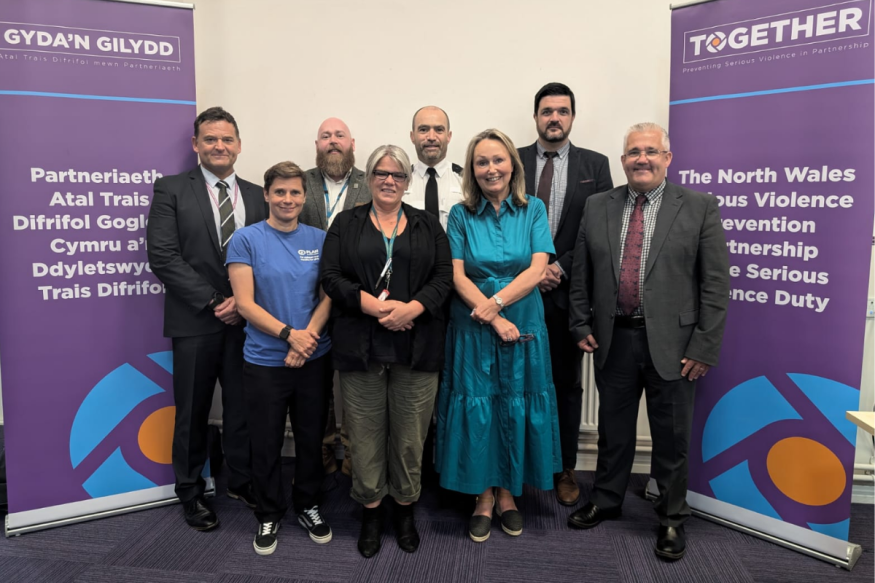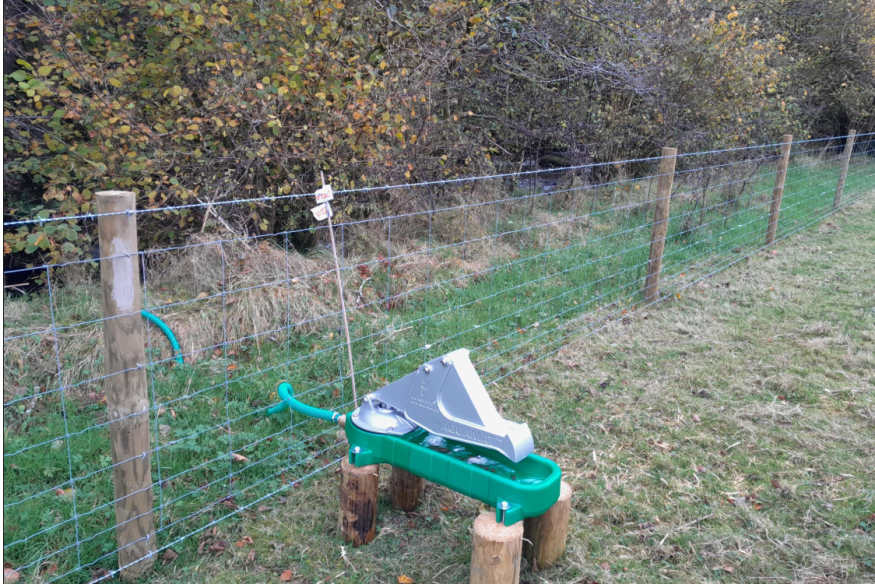 May 20, 2025 - 937 views
May 20, 2025 - 937 views
Serious violence has a profound impact on individuals and communities across North Wales. During 2022-23 over 30,000 offences of violence against the person were recorded by the police across the region. That amounts to 44 offences per 1,000 people.
To combat this, the North Wales Serious Violence Response Strategy was launched in June 2024 to work with communities to prevent and reduce serious violence across the region. This provided funding for local projects and targeted interventions aimed at reducing serious crime.
An evaluation of these funding interventions by independent consultancy firm Wavehill has found strong evidence of the benefit of these projects. The evaluation shows these projects have helped to facilitate partnership working, education, and information sharing that can help create a better response to violence prevention in North Wales.
The strategy brought together the Community Safety Partnerships, which include the police, local authorities, fire, and rescue services, and specified health and criminal justice agencies to tackle serious violence and its root causes. The group was convened by Andy Dunbobbin, Police and Crime Commissioner (PCC) for North Wales.
His office has overall oversight of the funding under Diane Jones, Serious Violence Programme Lead. The Office of the PCC and Community Safety Partnerships identified that interventions should focus on prevention activities, aimed at identifying and addressing the factors driving risk and contributing to violence. Over 20 projects across North Wales have received a share of £300,000 funding from the Home Office. These projects have focused on education, diversion and outreach activities.
Wavehill’s evaluation involved reviewing these projects and targeted interventions over the last year that have received funding from the Strategy. The evaluation measured how effective the interventions have been in ensuring that serious violence is being reduced and whether local communities are becoming safer. The evaluation has also helped ensure that funding and investments are being directed most effectively on behalf of the people across the region.
An example of a project delivered using the funding is ‘Don’t Steal My Future’, which aims to raise awareness of sexual violence and the dangers of grooming, pornography, and misogyny among schoolchildren. The format of this intervention is a workshop of up to three hours delivered by a team of experienced trainers from Bangor-based organisation RASASC. These trainers provide interactive learning, real-life examples, and lots of useful information presented sensitively to help educate attendees about what sexual violence is, its prevalence and the impact of it – not only for survivors but also for offenders and their families. The project received good feedback from teachers and schools, who noted the positive effects the workshop had on the young people who attended.
While praising the overall effectiveness of the interventions and the aims of the strategy, the report also notes that the short funding timeframe and an evaluation window of only a year mean that it may be too early to measure the long-term effectiveness of these projects. However, as the North Wales Serious Violence Response Strategy moves into its second year, the hope is that in time the effectiveness of the interventions will become clearer.
Andy Dunbobbin, Police and Crime Commissioner for North Wales, commented: “As convener of the North Wales Serious Violence Response Strategy, I am pleased to see this evaluation recognises the effectiveness of the work we are doing to combat serious violence in North Wales. I would like to thank Wavehill for their work on the report and Diane Jones in my Office for all her efforts in making the strategy a success and in bringing the different stakeholders together in the service of the people of North Wales to implement the strategy.
“We are at the start of an important journey, and a number of these projects are in their early stages, a fact noted by the evaluation. Our task now is to continue this good work and build on the first year so that we ensure North Wales is a place where people can live without the fear of serious violence and in safe and supportive communities.”
Sarah Usher, Senior Consultant of Wavehill said: “This has been a great opportunity to support the organisations working with the Duty to improve understanding of the impact they're having in their local communities. Through our collaborative approach with those involved, we've been able to create tangible recommendations that support learning, in the hope that our work can help evidence and improve delivery that contributes to reducing violence in North Wales.”
Diane Jones, Serious Violence Programme Lead, Office of the PCC, added: “Thank you to all our partners across North Wales for the truly collaborative approach to tackling serious violence.
“As we enter our second year, our progress to date clearly shows that we cannot address this complex issue in isolation, and this partnership remains crucial.”
The key priorities of the strategy to combat serious violence in North Wales are:
Supporting and enhancing prevention and early intervention around violence against women and girls, domestic abuse, and sexual violence (VAWDASV).
Promoting contextual safeguarding to work with children and young people vulnerable to exploitation and/or modern slavery.
Identifying and implementing improvements, best practices, and innovation as a partnership to respond to serious violence.
Building a preventative approach in North Wales, through an understanding of risk, adverse childhood experiences, and trauma.
More information about the North Wales Serious Violence Response Strategy can be found on the OPCC website here: www.northwales-pcc.gov.uk/serious-violence-duty









